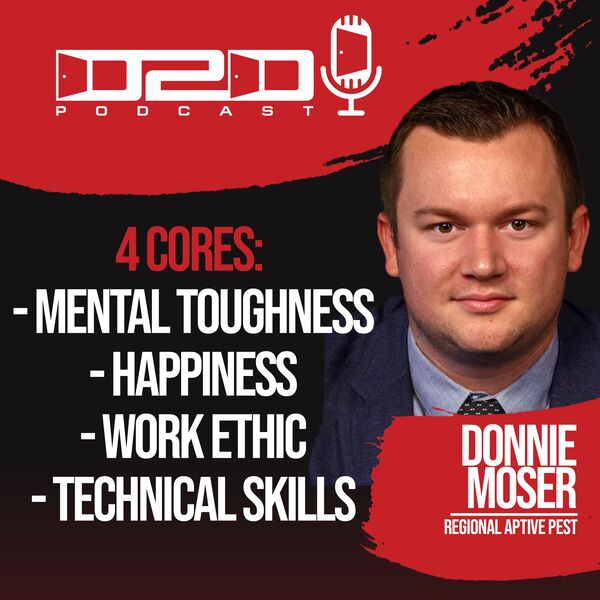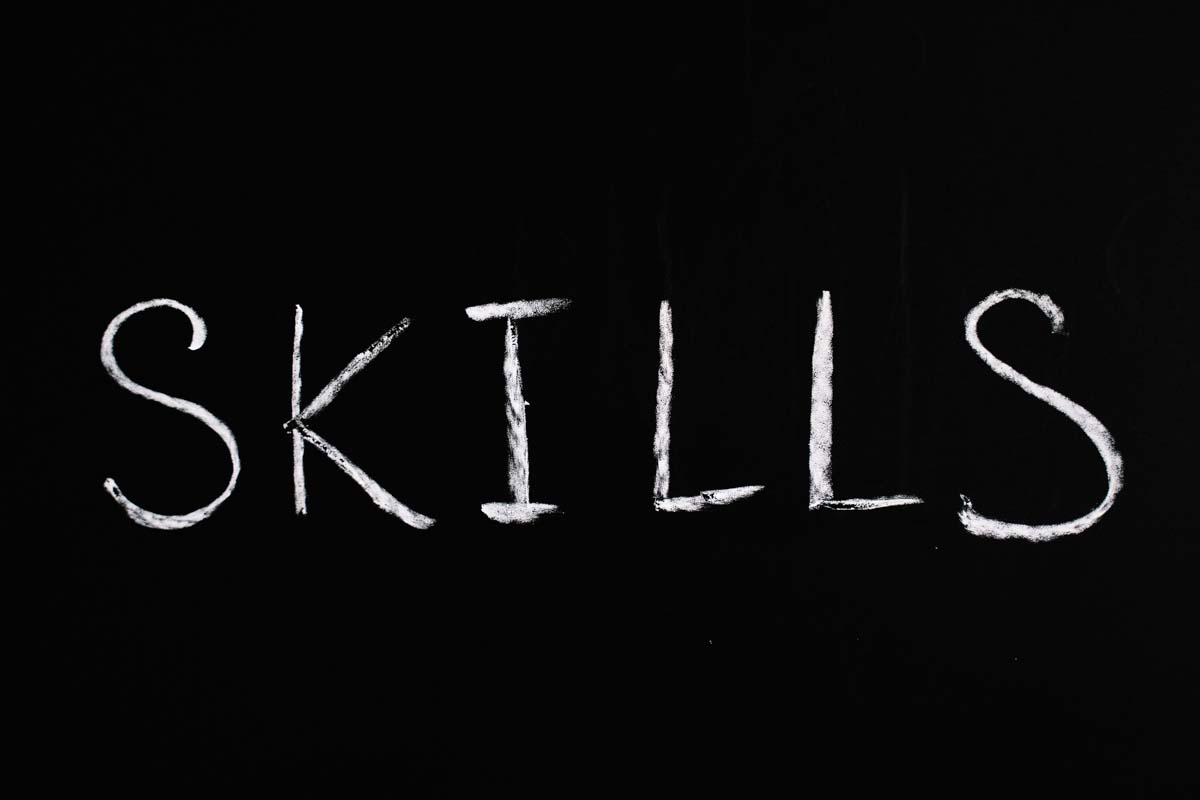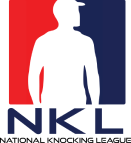Speaker 1: (00:02)
Bill, Can I help you?
Speaker2: Hey listen up, I’m bringing you the best content to ever exist in the door to door industry from sales leadership, recruiting, impersonal development.
Speaker 1:
Why would I need that?
Speaker 2:
Because never before have we been able to collaborate with the top experts in their industries, sharing their secrets and techniques and what makes them the best.
Speaker 1: Wait, who? Who are you?
Speaker 2:

I’m your host. Sam Taggart, creator of the DDD experts in Ddd con. Is there a place we can sit down?
Speaker 1:
We’ll come on him.
Speaker 3: Register today for D2DCon, learn from over 40 amazing speakers including the real wolf of Wall Street Jordan Belfort. Come as a team. Learn as a team. Leave as a tribe.
Speaker 2: (00:48)
Hi everybody. I’m Sam Taggart and this is the D2D podcast and I’m here with Donnie Moser who is okay. I’m going to just call him the hall of fame. CUTCO first guy. I’m going to bring back Cutco days pretty much. Uh, he’s now regional manager at Aptive Pest control has, I mean, how many reps like overhead?
Speaker 4:
We’ll have over a hundred. Over a hundred. Yeah.
Speaker2:
So a lot of people listening to this or the little guy that’s like got like five reps and they’re like, I’m, how do I get to 10? And that’s, you know, you started there, right? I remember. Yeah. This was year one getting into summer sales. It was me or pest control. And this is what’s fun is now, what, six years later we’re on a podcast. But yeah, this is cool. So anyways, so Donny is now built a massive organization teams, um, last year did what, how many thousand accounts?
Speaker 2: (01:41)
Just shy of 15,000. Yeah. You know, no big deal. 15,000 accounts. Uh, and that’s more than a lot of pest control companies will do as a whole. Right. True. Um, and so anyway, speaking of door to door con, which is awesome, representing the active, which is probably by far the biggest, not even like, not even like there’s not even a close second. Right? Yeah. How many, how many accounts is active do as a whole last year? 230,000 accounts roughly. I know the exact like on the dot number, but 230 plus. I mean that’s so many accounts. I think like a lot of people can’t even fathom that. Like, you know what I mean? So anyways, so awesome. Um, awesome leader Rep. I mean, what was your best year? Five 50 it was that your first year? No, it’s my was two years ago. Two years ago.
“what distinguishes you versus everyone else is out there in the feeding frenzy of how to get recruits”
Speaker 2: (02:32)
Okay. You did how many of your first year you crushed it at four 54 50 is first year ever doing it out the gate was like, I’m a player, don’t worry. I’m a boss anyway, so if you’re listening to this, what we’re going to dive into is really how he builds this a team of 100 people. You know what I mean? It’s how, how do we do that and what distinguishes you versus everyone else is out there in the feeding frenzy of how to get recruits. Right. Uh, we’re in that season where, you know, I was just, I’ve been at three different companies today for other things and you know, I’m like, it’s that time of the year, you know, how many recruiting meetings do you have today? It’s just so funny. Like, you know, I it, and I think there’s some people that do it right and some people that are just kind of scrambling for the low hanging fruit and there’s some people that know how to really retain and attract this top talent. And that’s really what I want to dive into. Um, so kind of before we dive into this, let’s go, let’s, let’s rewind to pre mission Donny Moser, that uniqueness. What makes you interesting? Tell us kind of your story.
Speaker 3: (03:34)
Yeah. So, um, you know, I, uh, when I was 18 years old, I was senior in high school and uh, I needed to get a job and didn’t really want to do all the applications and all that jazz has kind of Lazy, you know, 18 year old basketball season just finished. I went on monster.com and I found this random job that said $18 per hour. And I was like, it’s better than eight, which was the minimum wage in California at the time. So I went in for this interview and it was selling Cutco knives and it wasn’t 18 an hour was 18 per appointment that you do. And that roughly takes an hour to cook,
Speaker 2: (04:09)
Plead an appointment, but you have to set off your plate. Got me. It didn’t it logically put those two together? You’re like, yeah. So I,
Speaker 3: (04:16)
I went to the training and I was like, I know a lot of people, I’ll just set up appointments. I got you. Get up, doesn’t appointments in a day if I want it to. And then I made my first cell and I remember closing my first sale and I said, so, uh, you know, I wouldn’t be doing my job if I didn’t ask you the following question. Um, you know, do you want to place an order today? That was the way we closed.
Speaker 2: (04:39)
Oh, this is so all, yeah. So awful. And, uh, you know, this lady, this lady, she goes, yeah, I’ll take the white one. And I said, really? Really? Anyway, I made sure
Speaker 3: (04:54)
$300 and the, you know, an hour. And I was like, stoked. So then I started training and getting focused and then a ended up being the number two rookie that year and the whole company 10,000. Yeah,
Speaker 2: (05:04)
yeah, I was going to say, when you say like, it’s so funny with like we’ve interviewed a few CUTCO reps on here. We’ve had the top rep and few other people, but I think a lot of people undressed,
Speaker 3: (05:13)
you mean how massive that organization is huge. Since nationwide coast to coast every city. Yeah.
Speaker 2: (05:20)
So number two, very first year out of the gate, then you go serve as LDS mission. And I think this story is also kind of unique.
Speaker 3: (05:28)
Yeah. So, um, go to serve a mission and then it being three years instead of two.
Speaker 2: (05:34)
It’s like, it’s like how in your next year to year
Speaker 3: (05:39)
It was absurd. But uh, um, so what happened was is is my visa paperwork got lost several times and um, they prolonged the length of the mission because they lost the paperwork. So I ended up doing it for three years. It’s awesome. So, so yeah. Extra blessings,
Speaker 2: (05:58)
Right? Yeah. Anyway, so maybe that’s why you’re good today, you know? So then right out the gate, you knew you came home. Like, I’m ready. I know I’m selling. It wasn’t one of those, it was like me, like I was like, which company, where am I going? Versus like, oh, summer sales. You’re like, I’m going to be good and I’m doing this. Oh yeah. And you came in hot. I mean you had what 10 dudes before you even sold. And I was like, I’m going to get a team of a first year manager guy. And it was like, how do we get him? And uh, I lost him. But anyway, he’s doing well. It was terrible, terrible, sad moment in my life. I ended up working out. He ended up working out. But um, so fast forward to today, I kind of, I guess, what are some of the key principles have helped you kind of get to where you are now?
“when I was first trying to put a team together….there were guys that had hundreds of recruits and I was like, how can I get five, 10, you know?”
Speaker 3: (06:41)
Yeah. So I mean, you know, when I was first trying to put a team together, I remember being, you know, young and hungry and seeing all these regional managers, adaptive, active and you know, seeing the big visit building across the street and knowing that there were guys that had hundreds of recruits and I was like, how can I get five, 10, you know? And I remember I recruited like three the very first, uh, the very first semester I was recruiting and no, eight, eight of them and five of them all bailed on me over Christmas. And I was just devastated. But I think the key for me was that I just continued to stay at it. I was constantly calling people, constantly texting people, constantly, just networking, hanging out, being social, bringing it up. And then slowly but surely the, a snowball started. But the key thing for me was that that first team killed it. That first, that first team dominated. We did. We did
Speaker 2: (07:34)
Partially hopes you failed. Yeah. Inside. I’m like, oh, they actually did well. Darn good job. That’s always the hope. Hoping you’ll come back crying. No, no regret it. No. But keep going. Yeah. No. So,
Speaker 3: (07:50)
But the key, the key to having that first team do well is I got them soup, I got all of the reps super bought in on like a unique vision
Speaker 2: (07:57)
on couple of them are still with you. Yeah. Which is awesome. Alan Johnson, hope he’s watching shout out and a regional better becoming a Provo beach today. Very
Speaker 3: (08:05)
First recruit. Yeah. He’ll be here for a little beach, Brooklyn and Dawson. But uh, yeah. So, um, but we, we just, we, we built a vision of what we wanted to accomplish and uh, and every time I was in front of the reps, I try to be delivering value. I think the worst thing you could do when you’re leading a team or you have recruits is one come off as selfish and to not like deliver like unique value to the people that you’re trying to manage the manage. Yeah. Like you need to make their life better. You need to give them tidbits of information that, that make them better at everything, not just selling. And then you teach him how to sell to and we teach them how to sell and teach him how to do things better. And then it works. Like, you know, you build a friendship. Yeah. And it’s deeper than just work. You build a, you build a relationship and that’s what keeps people, people with you for a long time. And you know, to the point that you stopped delivering value is when your recruits will leave. It’s never, it’s never the recruits fall generally. It’s always, it’s always yours. If you’re having people leave, there’s something, there’s something that you’re not offering that they need.
Speaker 2: (09:10)

Speaker 2: (09:53)
It’s like what’s the nuts and bolts of step one, step two, you know, and, and obviously I don’t want to reveal all that. So we’re going to go a different direction, which is still applies to the retention, the growth, the getting the buy in, the long term aspect of recruiting. But it’s more so this unique principle that you kind of have called your four corners. Um, and I, and I, that really sparked kind of this, I don’t know, it just got me like, oh, that’s cool. It’s just simple. It’s for the four core. Like what is this? Where did it come from? And then let’s dive into like what are the four course? Yeah. So you were talking a little bit about
Speaker 3: (10:25)
How, um, you know, you, you, uh, we’re out leader sometimes kind of victimize themselves like it’s the company or it’s the reps and they don’t take ownership. Right. So I had a really bad year, one year at active, it was actually the first year that active was active the year before it was Alterra. And, um, we had, we had a lot of bad things happen. Reps didn’t sell well. People got super unfocused when it was hot out in Las Vegas. Uh, guys were struggling with cashflow during the summer. They weren’t selling enough to make enough and it was, it was actually kind of a disaster. And
Speaker 2: (11:01)
So it’s not all like your first year, you’d assume we crushed her first year. They’re all going to be like this. And I think a lot of people get scared, and this is kind of a tangent, but I think it’s important to know like, yeah, Dawny has bad years. Like that’s okay. Like it was terrible. It was, it was terrible. I’ll be honest,
Speaker 3: (11:18)
Honestly, absolutely. Like terrible. It was the worst summer. Um, it was harder than parts of like my mission that were really hard. It was hard. And uh, there were times I’m going to be vulnerable right here. There are times I’d sit in my car and kind of cry a little bit cause I was just overwhelmed with how bad things are going. But I was looking at how bad things were going. And uh, you know, your initial thought is to kind of blame outside sources, right? And then I realized, you know what? No, it wasn’t, it was because we stopped delivering unique value to the people and helping them stay locked in and focused the right way. So I, I looked, I was like, hey, where, where are the reps struggling? A little bit. Like none of us have a vision of what we’re trying to accomplish. None of us are like actively engaged with our work.
“We’re not enjoying knocking doors. Everybody says, oh, knocking doors sucks. Like knocking doors doesn’t suck if you engage with it properly.”
Speaker 3: (12:01)
We’re not enjoying knocking doors. Everybody says, oh, knocking doors sucks. Like knocking doors doesn’t suck if you engage with it properly. Right. Who I love that nugget and anything, anything, if you engage with that properly becomes fulfilling. Or even your finals, right? Your, your schoolwork. You just have to be like focused. And so I realized what’s, what’s causing this? And so I came down to guys didn’t have mental toughness. Okay. They weren’t happy or they were super stressed out. Okay. They weren’t working or they weren’t trained properly. They don’t have the right technical skills to build a sell pest control properly. And so I, I kind of started looking at a lot of successful people and I read dozens and dozens and dozens of books, audio books, ebooks, hardcover books, and I put together these four course. And what these four courses are designed to do is create daily habits within each category in order for you to be able to start focusing on engaging with all of the types of things you’re doing and your life, and then fulfill your vision in that aspect.
Speaker 3: (13:03)
I liked that. So one more time you have yeah, it was kind of floor. Yeah. So just more for mental toughness, work ethic, happiness and technical skills. So let’s dive into each one. Just kind of in a nutshell in overview and kind of what is your theory of mental toughness? Because it’s interesting. I think we all want to say we’re then or natural tendencies to be like, yeah, I’m tough. Like dude, I am the biggest wimp when it comes like physical pain, you poking a shot in me. I like, I’m not mentally tough when it comes out and I’m okay to be vulnerable in that. I think a lot of people when they sign up for this job had this mindset of like, oh, I’m going to be bad a like I got this. Like I’ve done hard things, I play football or whatever. But like I want to hear your take when you say mental toughness, like what is that?
Speaker 3: (13:50)
Yeah, so it’s kind of funny. So I went on, I went online and I typed in how to become mentally tough that this guy named James Clear popped up. And uh, he had this article, he writes an article every Tuesday and Thursday and you know, pops into my email. Um, but I found him by doing this and he wrote an article on Angela Duckworth’s book called a great book. If you haven’t read it, great book and a, and then she has a ted talk where she says, you know, grit is what makes you perform better than anything else better than Iq, better than your talent levels. It. Grit is the number one predictor of success. But then her ted talk, she says, um, you know, where do we go from here? Like, like you can have growth mindset, but James clear steps in and he says, motivation is super fickle, super fickle.
Speaker 3: (14:37)
Your motivation will always change. You cannot control your motivation, however you can control all of your habits. And so what we do is we focus a ton on habit creation and our region, we’re talking constantly about habits, habits, habits, habits, how to create good ones, how to get rid of bad ones, how to become more disciplined in your habits. Because when you’re out knocking doors and you know you’re, you’re having a tough day or whatever, it’s really easy to go home an hour early. But if your habit is stay out till nine every single day, it makes a difference over the course of an entire summer. And you’re able to stay locked in. And then even if you don’t sell because you stuck to your habit, you get a win when you get, when you create positivity, it gets a little bit of endorphins gone and you’re ready for the next day. So, you know, I’ve Bagel twice in the last three years.
Speaker 3: (15:31)
Yeah. And it was two days in a row during a competition. It must be a terrible life. Only big old 12. And it was funny, everybody was calling me like, Hey Bagel, you okay? And I just said, yeah, of course I’m okay. I did what I was supposed to. Yeah. Nothing changed. Yes. Good day. Bad Day. Nothing changed. Still motivated. Yeah. Cause it was habit. It wasn’t demotivating. It was the next day was the next day and I was gonna wake up, put my shoes on, go out work, same thing. Yep. And so if you’re it, and that’s how you build mental toughness. That’s how you get through a tough divorce is because you have, you have great habits. You have something to lean on that’s just the same every single day. How do you use the, that’s what he says, the science behind it is. Anyways. So what are the habits that you, when you say I focus on teaching my team habits, what are some of these habits that you’ve instilled in the culture of the team?
Speaker 3: (16:20)
Good question. So when you work for our team, you’re meeting is at eight 30 in the morning instead of nine apt as meetings are at night, we have our meetings at eight 30. And the reason why is because it gives you a 30 minute competitive advantage on every other team. So automatically our guys are focused and, and know that they have a 30 minute advantage on every other team in the company. And there are teams that are in prior to doing it at eight 30 but you know, but it makes you feel like, it’s like you get an edge. What’s are you get an email third yet? Um, and then you know, we try and make sure everybody’s exercising in the morning, doing some type of training in the morning to the early for eight 30 early before 8:30 AM. So you’re doing, you’re waking up by seven working out until seven 45.
Speaker 3: (17:07)
Yeah, I guess. I mean that’s like tie it, that’s why it’s tight. Yeah. So Austin, Elvis, hopefully he’s on right now. Um, love that kid. But uh, you know, me and him a couple summers ago, we’d get up at five to go with you by the way. Five 30. Thanks. No, he never told you that. If somebody is watching this, the is on the other side. I can say names. I was like, here, go with this guy. Yeah. So, um, you know, we, we will, we look up at five, five 30 every single day religiously worked out, trained, ready for a meeting at eight 30 went out and knocked and then we knocked till nine. Another characteristic is we knocked late, we knocked 30 minutes after dark. We don’t do like, oh, it’s dark. We head home. Like we try and stay out a little bit longer. So just those are the work habits, right? So the second one is work ethic and you know, you find a habit of going the extra mile and every little thing that you do. So if you know your trainer says you need to do eight reps, do nine,
Speaker 2: (18:03)
The habit of all of the habit of doing the one plus versus the one less the, it’s like I, I’ll set up like, yeah, I wanted you to 10 reps. I’m like, I feel like for working out I’m just using this in my life. I’m the guy’s like, ah, I’m an eight. I got it. Yeah. That’s interesting that you say that
Speaker 3: (18:22)
Because like thinking back and like, no, I would never do one more. Yeah. Or you know another, another example is if you’re tired and you’re just dying in a workout, just finish it. Don’t not finish the workout. Yeah. It doesn’t matter how long it took you. You are a finisher. You’re in the habit of finishing. Exactly. Versus Clinic. Exactly when you’re studying. So another thing I always tell guys to do as I, so when you’re studying for your test study for the extra hour that you think you need study for the extra hour because it’s constantly creating habits of just going extra, a little bit extra or always finishing. That way you don’t fall short because too when when you start, when you start building habits and all sorts of different areas of going a little bit further, going the extra mile, then what happens is it just transfers to everything and it say that in our tickets.
Speaker 3: (19:10)
How do you do? It’s how you do anything is how you do everything. There’s not a truer statement, not a cheer statement. Excellence is a habit, you know? Aristotle says that and like, yeah, if you’re, if you’re stuck at one thing you’re not going to be good at another thing. You know what? You’d be good at everything you do or try and have excellent habits at least at everything. If you could just it, it translates, I, I you look at like, you’re like why would being doing the extra rep working out translate to me staying out till nine 30 versus nine you know, somebody like they don’t correlate. It’s the mindset that it’s translating. And it’s funny cause off camera we were talking, you were like
Speaker 2: (19:49)
I need to add a fifth to the core four thing or four course so that it’s 80% mental, four out of five are mental. Yeah. And I think a lot of people and, and, and it’s interesting you say that because a lot of people don’t
Speaker 3: (20:03)
Bring the awareness to the mental choice of creating habits and good practices and like choosing success essentially. Yeah. To too many people in our industry just go out and sling on accounts or you know, we’re going to go sell or I just, I just think you can have a different approach and you just get so much more out of it then you’re not, you know, I’ll have to knock, you know, it’s like sweet. Like I worked out, I trained, I went to the meeting, maybe had a red bull and a pre workout, you know, who knows, you know, definitive,
Speaker 2: (20:34)
But you know, you’re locked in from our sponsor. Bang, Bang. Actually may sponsor did it. ECON, we’re actually saying like, dude, you probably should come. It’s a good fit. They’re like really? The door knock community and lucky up here,
“it’s just a different mentality when you’re focused on successful habits to try and become mentally tough”
Speaker 3: (20:49)
Third degree is addicted to caffeine. Yeah. But uh, you know, you’re focused, you’re ready to roll. You have a goal for the day. Like you’ve got so many wins involved in, then you’re knocking doors, you’re engaged, you’re focused on, you know, how many knocks you’re going to get or how many hours you’re going to work. And it’s just, it’s just a different mentality when you’re, when you’re focused on successful habits to try and become mentally tough to try and stay locked in, to train gauge with the process, trying to go the extra mile. When you do those things, you just, it just changes the whole element. Like people that work at adaptive, like we’ve only lost my region. We’ve only lost three guys to different companies before three, three. Um, and the four years I’ve been doing this, three, three people. And I honestly think the reason why has nobody that comes out says that like knocking doors sucks. It’s this
Speaker 2: (21:39)
Not it’s you change the position of how people view door to door versus I think, and this is an important retention and recruiting and team building and unit unity. You know, it’s the what’s, what’s the world’s position, what’s other company’s position and what’s our position on this job? Because I think a lot of people come in and say, I’m going to do this for the summer so I can do a real job. I’m gonna do this summer so I can get through school. I’m going to do this for, you know, I, I did this because I know their options. I couldn’t get it, you know, or whatever it was. And what I’m loving about what you’re saying is just saying, we teach our people life skills, we create success. We train you in the school of life. School is school. This is like if you’re mentally tough, you work hard, you are happy and you have this tools and the technical stuff, like you’re now a machine. It’s like I’m, I’m, I’m pumping out freaking like Russian boxing machine. And that’s an absolutely.
Speaker 3: (22:44)
That’s it. And that’s exactly, that’s exactly what, what we’re trying to do.
Speaker 2: (22:48)
Yeah. And then you’ve done it. That’s why you’ve had such high averages such, I mean your averages in comparison to all pest control averages where that higher, right. I mean, and it’s like, I think people don’t realize why they struggle recruiting is they’re not creating systems or habits to create attraction. You know what I mean? It’s like, it’s attractive when it’s like all of our, we’ve lost only three people are guys sell more than everyone else. They stick around because we, they make more money than doing anything else and we love doing it. It’s not just like, oh, I have to go knock doors. It’s like we Dominic, but what’s crazy, I’m just sorry, I’m just, I’m, I’m like, I’m like, people need, yeah, I’m like, Geez, I’m hyping them up. Maybe way too much people. But like if you’re watching this, you’re probably like, why aren’t you doing so much?
Speaker 2: (23:35)
Because I’ve watched it. I literally said Austin, go to Donna’s team, right. I mean because it’s, I watch how you’ve led people instead just said, yeah, I want to make so much money on, you know what I mean? It’s, it’s a leadership thing and that’s why I was like come speak at Dorn an icon. So I want to give you some, some big props there. Thanks. So moving on to like happiness. That’s all. You get such a broad word. I hate it. Well before we get to happiness, I want to point out one thing because I trained roofers. Dude, I’m speaking in Dallas on Monday you should just come. So Monday I go to, I’m speaking 150 roofing contractors and I like the last time I was there and my favorite line that I said, and I kind of said it in an accident, I was like, you guys are wanting to be doorknockers. Like you can’t call yourselves door dockers. I’m like, you go out once a month for a Saturday or you know what I mean? I’m like, I’m like, I want to see one of you guys just go eight 30 meeting till nine 30 at night. And I bring that up to people and they’re like, well that’s impossible. I would die.
Speaker 2: (24:38)
Kind of like what? Like these guys do that for five months straight, four months straight, nonstop. Like, and I think some people think they work so hard. I got soft and solar by the way. I like to be real. I’m like that right now. To me it was like, Oh man, I get my butt kicked right now. Cause it’s a, it’s it, it’s a habit. And it’s like I got out of the habit and solar and I’m like, how’d I applied? That work ethic to this industry does dominate. It’s just people get out of the habit because it’s like, oh, I make this much money in such a short amount of time. I then lowered my habit, you know what I mean? It’s like, yeah, put the two together. Geez. Yeah. And that’s the point is, you know, hopefully it, when guys come through yeah.
Speaker 3: (25:20)
Program and if they do leave to something else, like they don’t adjust to the habits of where they’re at, that they keep their, they keep their ground habits stable and the same. So they’ll be more dynamic when they move on.
Speaker 2: (25:33)
It’s dynamic because no, nobody else is nobody else. I don’t know of any
Speaker 3: (25:38)
Video. Listen, some are cells that teaches it to a level that, that we teach it
Speaker 2: (25:42)
Well. You were saying, okay, this is important. Here’s fun fact secret sauce people. Uh, I didn’t get Taylor’s like Sam’s going to app and actually just got recruited by Green X. Darn it. Just play it. I was just there. But, uh, it’s a joke that was probably not appropriate for podcasts. Darn it. He threw me on. Okay. So, no, but what I’m saying is, uh, I had an important point. It, so this habit of what I don’t even, I can’t even think of my stinking thing. You threw me off Taylor. GS. Keep going. Happiness, happiness. So, um, you know, I was reading this book called win forever. Kind of a weird place to find a breadwinner forever. Yeah. It’s by Pete Carroll. It’s a really easy book. He’s a football coach. It’s not very artistic particulate.
Speaker 3: (26:28)
It’s Kinda like layman’s terms the whole way through. You can just bust through it. 150 200 pages. It’s nice book. But he, he was talking about how, uh, you know, he was studying psychology and you came across Maslow’s hierarchy of needs. Uh Huh. Okay. So for anybody to have like a fulfillment of their potential, there’s four basic needs that they have to meet first. Right. And there’s physiological needs, physiological needs. You have to be able to eat and feed yourself. Okay. You need to have, um, you know, social, social needs met. You need to be, and I might be butchering the order, doesn’t really matter cause there’s another, there’s another theory that says that they’re, they’re not a pyramid, they’re all in a box. But anyway, but you know, you have to have your social needs met, so you need to feel love and belonging.
Speaker 3: (27:14)
Okay. And you have to have goals and safety needs met. You have to have a house and have some shelter, not be like exposed to the elements so to speak. And then you have to have goals that are met and after you had those four things met, then you can self actualize or live in the zone or perform at a different level than you’ve ever performed before. But those four needs have to be met first. So those four, those four needs. And I was thinking like how often do married reps struggle with rent during the summer? All the time. All the time. And if they’re struggling with rent, they can’t sell like just based on Maslow’s hierarchy of needs. Right. Okay. Or if they’re out of check with like their, their wife, you know, the worst rep that I ever had, really talented Rep. Okay. Not worst rep, really talented Rep.
Speaker 3: (28:03)
The worst experience I’ve had from a rep was when he was going through some problems with his wife during the summer and it just totally ruined a summer. Yeah. Because, because he wasn’t happy. Right. So your relationships have to be in check. And to be happy, you have to have your money, your finances in check when you’re happy to be happy. And so we do is we focus on helping guys to get their stuff in check so that when the summer comes they’re not stressed out, they’re not panicking, they will focus on the task at hand. Um, the other side of happiness comes from affirmations, visualization, meditation. It helps you kind of be at one with yourself, understand like the elements, absorb the full experience of what you’re experiencing. And I found that through meditation, the hard times become a lot more fun because you’re absorbing the full, like sitting with it.
“it doesn’t become stressful. It becomes like something you cherish in a way. It’s kind of weird and no, I love that.”
Speaker 3: (28:54)
Yeah. You’re absorbing the moment of what it is and experiencing life. And so it, it, it doesn’t become stressful. It becomes like something you cherish in a way. It’s kind of weird and no, I love that. It’s a spiritual in a way, but the true but, and, and the, and all that stuff, you know, you can read up on it from, you know, tons of stuff from Phil Jackson to some of the best athletes in the world. All of them are meditating all of them. So that’s awesome. And then the last one is technical skills. And it’s probably the least focused on from a leading you because it’s kind of like you do it that way. He does it this way, we do it this way. There’s some, some basic principles. But like technical seals, that’s important though. I still need to know what to say and how to say it. Right? Yeah. I mean if you are never trained how to sell as a matter how happy you are mentally tough you are or how hard you work. If you don’t know how to close a deal, he can’t close.
Speaker 2: (29:51)
Exactly. I mean pest control, pest control. This year I literally went out and I was like, wait a minute, I’ve got, I’m interested in now. Like I don’t know where I’m going with this, but uh, yeah. You know what an endeavor me. So I uh, no, but I think it but your theory of training because in my opinion, there’s good training in that great training, right? And it’s like how, how do you train your people that you found lands? And it’s like I got them ramped up and they’re, they’re cranking. Cause that’s always a struggle. People deal with.
Speaker 3: (30:26)
Um, I’ll tell a story. We just kid named Jon Tibbetts. Jon Tibbetts, hope you’re on. You’re getting a shout out right now. Um, so I went up to DC last year to a train train and John was really struggling. He was like rarely struggling with his pitch and, um, let’s pair verbals were off and he’ll, he’ll admit to this, but his parables were off, you know, he was head nodding wrong, shaking his head like crazy and pest control. It’s all about when you smile, when you, not how you sound. That’s kind of our, our training focus. Right? But he was saying things the wrong way because he was all nervous. He’s clamped up. Right. And um, what we did is we just went through and we did a role play on the initial approach over and over and over and over and over and over again critiquing every little tiny thing down to like that one little section until he got it right.
Speaker 3: (31:21)
And then I had to move on. But the team leaders went through and did his service section and then after his service section they went through and they did is closing. And then he slowly got all the objections down and he ended up doing really well. You know, it really well. We thought he might be a service bro. He ended up doing, you know, just under 200 accounts and made really great money and you knew it was coming back and he’s got a couple of recruits now and it’s super, super great. And the guy that you’re like, we’re probably going to have to send home or make them a tech. Yeah, yeah. And, and it just, it all came down to as k John, like let’s just repeat that one thing until you get it right then. Okay, let’s repeat this next thing. So you get a ride, let’s repeat this next thing. And so a lot of times, you know, you’ll do, I see these pitches where they’ll go do this whole big old long pitch and you’re critiquing the whole big old long. Yeah.
Speaker 2: (32:09)
They’re like, here’s one thing you did well, rake it down. Yeah. And you can’t remember it. Five minutes. If you’re trying to write down notes and you’re looking at him and freedom and missing that part to write it, don’t know. It’s just like, hey, let’s just do the initial approach and it’s break it down by section. I love that. I love that. No, and it’s, it’s, it’s mastering the details. When you said your pair of verbals, your head nods, you’re shrugging, I’m like, you know when your trainers that go, I w my right over my head, I didn’t even know I do that. You know what I mean? And it’s just being as being a master, your craft. I think a lot of people don’t see this as an art. It’s like we’re, we’re musicians, we’re martial arts where sport, we’re athletes. So that’s like my, my tongue, my, my body language, my, my tones.
Speaker 2: (32:51)
It’s like that all plays into how well I do I contact. Yeah. Yeah. So many elements, which is why I appreciate what you’re doing, you know, cause you’re, I feel like your goal is to bring, you know, professionalism to the industry and I love it. I’m on board with that. Yeah. I mean not saying well, awesome. So last question before we kind of got to wrap up. So if you’re on here and you obviously got some love from Donny and you obviously some good nuggets, hopefully this is stuff you can go and say, maybe I’ll implement the four cores into my office or maybe all, you know, try to teach my people and to step my game up as a leader. Cause like when we talk about recruiting and we talk about building teams and getting to a hundred reps, it’s like the answer simply is what you said at the beginning.
Speaker 2: (33:34)
It’s I had value consistently and they directly correlate me to value therefore there around. Therefore they’re like coming out with this guy, he’s dope. Um, but the, the, the question, remember how I had it. My brain fart. I actually thought about it and this is my last question. So right now in the off season, you mentioned every Monday you hold your people accountable to almost like a program that is the, is this four course. And I thought that was really unique. Like, tell us a little bit about that and like what is that like? Yeah, so every Monday, so you know, I named the four quarters, we’ve talked a lot about them right now. All that information comes from like a plethora of just kinda like Johnny’s consumption of and about. So I took everything I knew about the topics, created a bunch of activities for guys to do on a weekly basis in order to, you know, enhance their ability to get better at those four areas and a, so every Monday we have a training meeting and usually there’ll be tidbits out of the books that are involved in the different course.
Speaker 2: (34:41)
And um, and then we hold them accountable to the assignments. It’s almost like, it’s almost like a university class class. Literally. It literally is. We have packets. I’ll hold my packet. I have, I’ll be like, look, I did it. Did you guys do it? You know, part of like the whole, like some won’t, some will. And to kind of have your discipline and your dopamine. Yay. Good job. Do you have like a reward system? You know, I, I don’t, I don’t, not, not, not vocally or like outwardly at something I need to work on as a leader, a way to kind of give the d like the good job or darn it. I, I’ll admit I have one, one, one downside I think to, to, to what I do in those meetings and even in my team and he’s, I don’t know if I give enough recognition out and I need to get better at that. Um, but we do do an incentive. So if people fill out the entire packet, read the books they’re supposed to and do it all, then, you know, in the, in the past we’ve given them iPads to go sell with for the summer. So they passed the track throughout the
Speaker 3: (35:38)
University school year. Essentially they get to then get the advent or travel money to get out to area or a flight for their girlfriend to come out during the summer, you know, whatever. Whatever’s cool to incentivize it. That’s awesome. Okay, so what, honestly, I appreciate your time. We’ve got to wrap up, but I, uh, it’s fun to like reconvene. What is it? What would that had to been? 2013 he was before 2015 14 okay. Yeah, it was right before 15 that’s awesome. I mean, so it’s like coming back years later. It’s cool to just say like, look where we’ve been and where you are and I love watching people get explosive growth because a lot of people underestimate the vehicle and just a short amount of time to say, I got off my mission broken. I need a job too. I manage a massive organization. Like you can do that too.
Speaker 3: (36:28)
Like if you’re watching or listening to this, like do anything anybody could if they chose to. Absolutely. If you put your, if you put your mind to it and you just, the the materials to learn how to do stuff is out there. It’s out there. Right. You just gotta find it, read it, and then do it. And what I found, what I found with almost everything, ah, man, it’s just doing it, just committing, doing it. The best thing I ever did was jump into summer sales not knowing what the heck it was. Just like I’m doing it though. I met with Connor Riggio Geo on like a Wednesday and the next Tuesday I flew to Houston. I signed on midsole or just just, we need more of, these guys just went, just went for it. And I just thought, I’m just going to do it. Like just, just jump in and do it. And I, that’s, that’s, that’s, that’s how you, that’s how you find an opportunity, I guess. Don’t be hesitant. Well, I appreciate your time and I’m excited to hear from you in January. Dude. I’ll make sure I hop in your chapter for sure. Hey, see



























